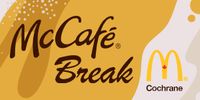Measures outlined by Alberta health officials yesterday are a step in the right direction for EMS reforms sought by the Cochrane EMS Emergency Citizens Action Group (CAG).
Chair Brian Winter says they incorporate two of the three actions sought by the local citizens' group. He says it's a win all the way around for improving the EMS service, hospital care, and even the newly-formed Cochrane Health Foundation.
"I'm glad that they're looking at what we've been preaching ever since we started Cochrane CAG and the need for an alternate mode of transport for non-emergent patients," says Winter.
Yesterday it was announced AHS will now be utilizing alternate transportation for non-medical transfers to free up paramedics and ambulances. By doing so, officials believe it will divert about 15 per cent of transports from EMS, allowing paramedics to respond to about 70 more transports daily.
He believes Health minister Jason Copping and MLA RJ Sigurdson, parliamentary secretary for EMS reforms, are both aware of the Cochrane CAG and other groups in the Calgary area.
"I think we've all been beating the same drum. It doesn't matter who takes credit for it. If they think they did it on their own, that's awesome. We can check that off of our three points."
"It's a great step, and I knew the UCP government when Danielle Smith got in was going to make some significant changes, and she's following through with her staff and her ministers. We've got to give credit to our MLA, our health minister, right up to the premier."
The announcement also includes what is referred to as a secondary triage, where 911 calls are sent to 811 (which provides free 24/7 nurse advice and general health information) when appropriate. Winter believes that, in addition to adding physicians to the emergency triage, will have a positive trickle-down effect on hospitals.
"So if you and I are coming in with a traumatic injury, there's an extra bed there, and a doctor is actually going to be at the triage desk meeting the EMS staff, so I think our hallway wait times are going to go down."
"Once they help clean that up, paramedics could drop off the patient and be back on the road in 20-25 minutes rather than waiting in the hallways for two, three, or six hours."
He believes it could aid one of the major goals of the Cochrane Health Foundation.
"If you read between the lines, they want to take the pressure off of the hospitals, and if we can extend the hours of our Cochrane Urgent Care and treat those who need to be treated, rather than going into the Foothills or going into the Children's (hospital) that takes the heat off the hospitals. I think that providing the best care possible after hours is coming."
"If we can take that burden off of the hospitals, it's a win-win for Cochrane Urgent Care and it's a win-win for the hospitals, and it leaves the beds open for emergency people."
Winter says the last remaining major issue for CAG is the flexing of ambulances in the current borderless system. He says up until 2009, Cochrane area ambulances responded to calls in a specific area.
"We knew what our area was, and we only went out of that area very few times. If they introduce a border system again, then our units will respond within that area. There's no reason why we should be sent to Calgary, or there's no reason why Didsbury should be coming into our area."
He says the bottom line is Cochrane area residents need to be confident that when they call 911 they're going to get a paramedic unit there as quickly as possible.
It's something the local CAG will continue to pursue and have their next meeting on Jan. 10.
The announcement was a follow-up to a direction set last month to improve emergency medical service response times, decrease emergency room waiting, and reduce wait times for surgeries.
Not everyone is delighted by the announcement, including NDP health critic David Shepherd.
“The UCP’s response to the EMS crisis is grossly inadequate and does not address the significant staffing shortage throughout Alberta’s health system, including paramedics and emergency room staff," says Shepherd in a statement issued yesterday.
“Paramedics have three specific calls which the UCP completely ignored again today. All paramedics must get off shift on time. All part-time and casual paramedics need to be offered full-time positions. And the UCP has to do far more to offer harm reduction services and reduce the number of overdose calls for ambulances."
He is concerned the move towards non-medical vehicles for interfacility transfers is a step towards the privatization of the ambulance service.





